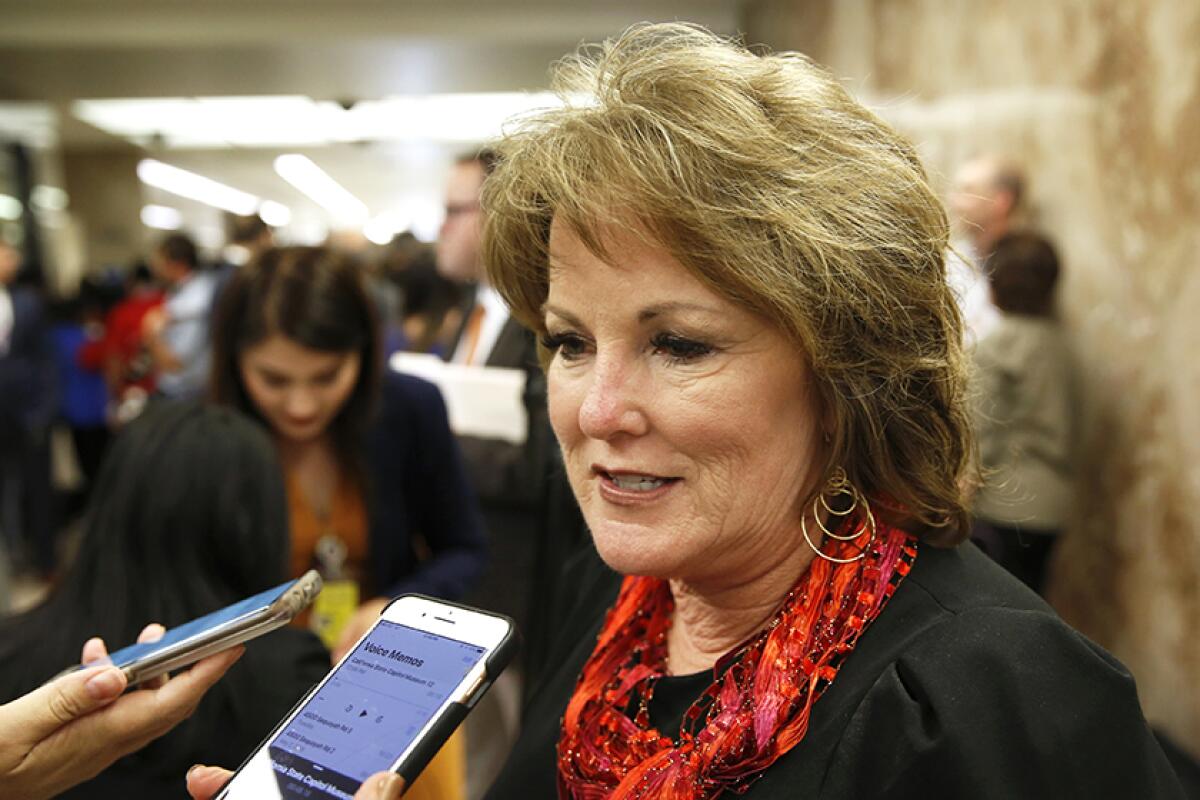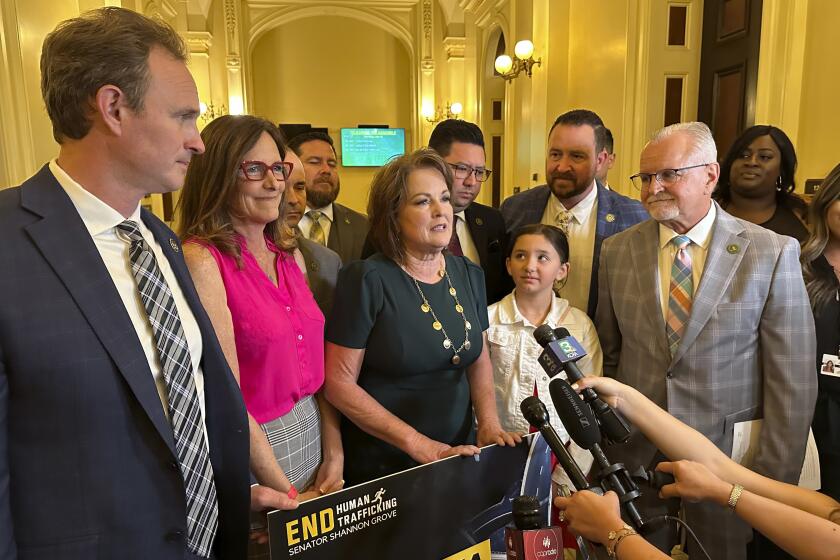California lawmakers come back with bill targeting ‘buyers’ of child sex trafficking

SACRAMENTO — After her noteworthy success in establishing harsher criminal penalties for child sex traffickers, Republican Sen. Shannon Grove has introduced legislation to lengthen prison terms for those who purchase or engage in child prostitution.
After a dramatic change of heart last year by Assembly Democrats, Grove won bipartisan support in the Democrat-dominated Legislature on a bill that reclassified child sex trafficking from a misdemeanor to a serious felony.
“This year, I’ve had district attorneys from across the state say that this law has allowed them to prosecute these traffickers,” Grove said referencing her “historic” bill that went into effect Jan. 1.
But she said that was just one piece of the puzzle.
This week, the Bakersfield Republican joined with Sens. Susan Rubio (D-Baldwin Park) and Anna Caballero (D-Salinas) to introduce Senate Bill 1414, which targets the solicitation of child prostitution.
A bill to strengthen penalties for child sex traffickers in California passes a major hurdle after progressive Democrats win amendment to shield victims from prosecution.
“It takes two criminals to commit a crime of sex trafficking,” she said. “The seller, like we addressed last year, and this year, the buyer.”
Current law doesn’t go far enough, Grove said, adding that adults who buy a child for sex can only be charged with a misdemeanor. Often, a person convicted of purchasing child sex will get a maximum punishment of six months in jail, said Santa Barbara County Deputy Dist. Atty. Tyson McCoy.
“I don’t think people understand how unchecked the buying of children is in the state of California,” McCoy told reporters, adding that most convicted people will serve less than full time because they are entitled to credits that reduce their sentences. However, prosecutors do have several ways to charge people with felonies for sexual offenses involving minors younger than 14, including child molestation or rape as well as attempted child molestation.
Matt SotoRosen, a deputy public defender at the San Francisco public defenders office, said his office is likely to oppose this bill as it did last year.
“In general my office is opposed to policies that go back to the 1990s and the old carceral policies,” he told the Times, questioning whether increasing penalties will serve as a deterrent.
Grove said she is hopeful that this time around she can curtail the unexpected rifts that her bill caused last year.
Gov. Gavin Newsom signed a high-profile bill to increase prison terms for those convicted of child sex trafficking, legislation that divided Democrats.
During a twist of events in July, Grove’s bill cracking down on child sex trafficking passed the state Senate but stalled in the Assembly Public Safety Committee. Democrats were at odds over whether the bill would have unintended consequences by also criminalizing the victims. Criminal justice advocates were also cautious over whether this bill would add to mass incarceration.
The opposition by the Democrats triggered a flurry of criticism and unfounded allegations on social media, and one lawmaker even said she received death threats. Gov. Gavin Newsom and Assembly Leader Robert Rivas (D-Hollister) also publicly urged for the public safety committee to consider a new vote. The committee eventually reconvened and passed it on the second go-around.
More to Read
Sign up for Essential California
The most important California stories and recommendations in your inbox every morning.
You may occasionally receive promotional content from the Los Angeles Times.













